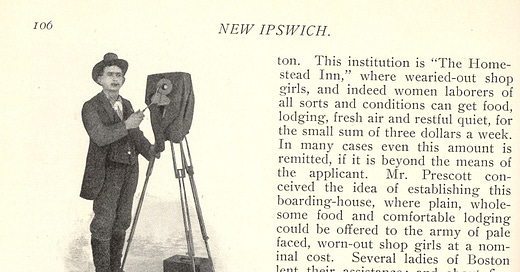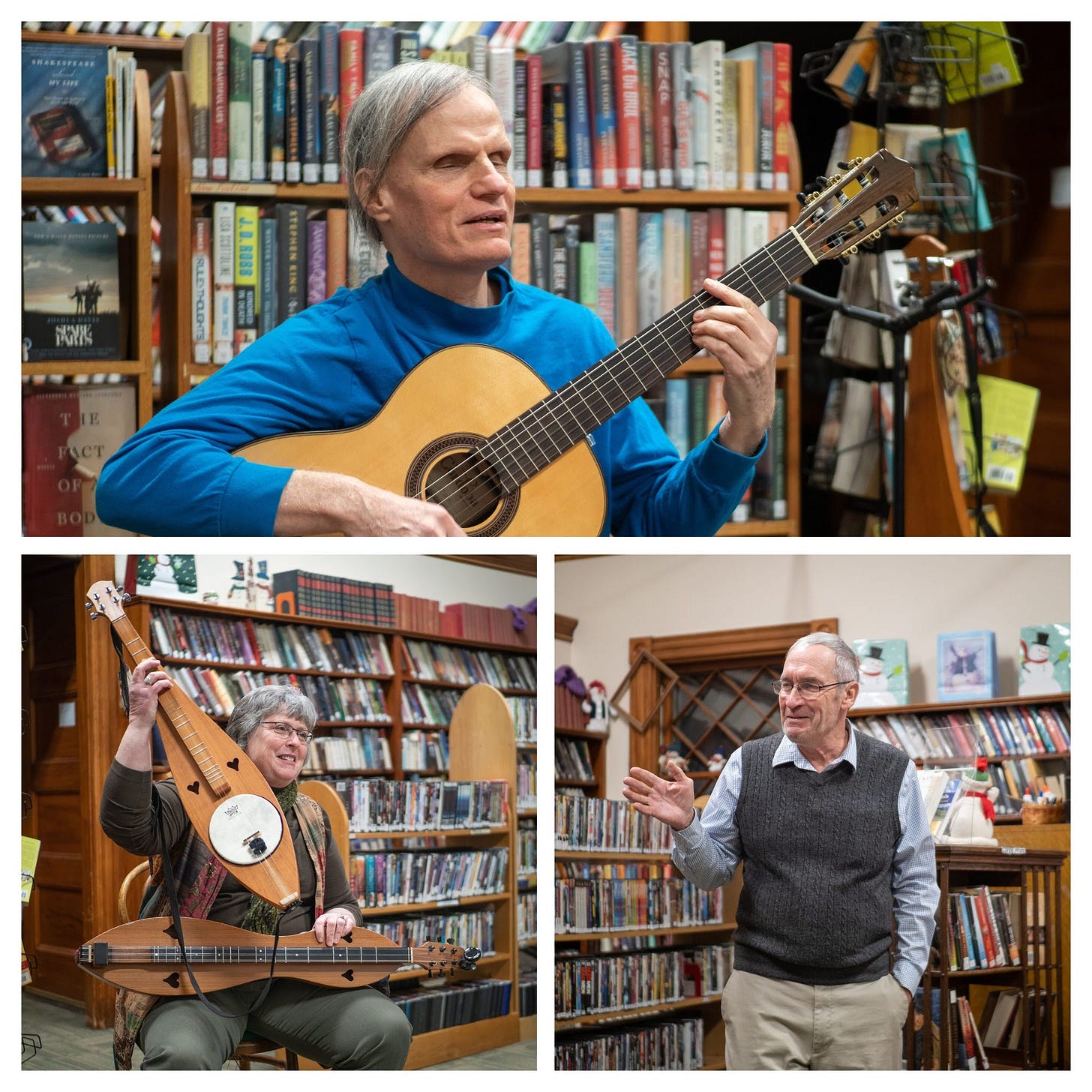Recap of Page 105
Page 106
President of Bowdoin College, sat with his beautiful ascetic young face turned upward in prayerful thought to hear 'the parson's exhortations; here the Champneys, Prestons, Halls, Barrs, Hartwells, Farrars, and all the pious folk of New Ipswich gathered to hear the Word; and the spot is redolent of the past.
Turning from it, one walks down through the little town and is confronted by evidences of a newer element. The New Ipswich public library, though perhaps a reflection and result of the old intellectual activity of the place, is essentially modern, and is exerting a wide and beneficent influence throughout the vicinity. Though very much of the money for its erection and establishment was earned, a good deal has been generously given by some of the residents. It contains three thousand volumes, a piano, busts of some of our famous authors and many tasteful appointments. Altogether it is an ideal village library, in appearance, management and influence.
An interesting feature of the New Ipswich of the present is an admirable charity established there by the Rev. George Jarvis Prescott, rector of the Church of the Good Shepherd in Boston. This institution is "The Homestead Inn," where wearied-out shop girls, and indeed women laborers of all sorts and conditions can get food, lodging, fresh air and restful quiet, for the small sum of three dollars a week. In many cases even this amount is remitted, if it is beyond the means of the applicant. Mr. Prescott conceived the idea of establishing this boardinghouse, where plain, wholesome food and comfortable lodging could be offered to the army of pale faced, worn-out shop girls at a nominal cost. Several ladies of Boston lent their assistance; and about five years ago the "Homestead Inn" became a fact accomplished in New Ipswich. A long, rambling, wooden house was purchased, a dormitory built, with little partitions dividing the tiny sleeping apartments, and as many comforts added as the scant amount of money in hand would allow. From the start the institution was successful. Shop girls, dressmakers' apprentices, typewriters, seamstresses, housemaids, cooks and…
(yes there is more, continued tomorrow)
On this day - January 17, 1898
William Jurian Kaula diary
17 JAN 1898
The student riots continue. They generally assemble in a crowd of fifteen hundred and with the intention of crossing the river and making a demonstration. The police make great efforts to prevent this by guarding the bridges with the view of breaking up the crowd. But they cross over in spite of these precautions. One Saturday they assembled in the Place du Carrousel and uttered their usual war whoops in front of Gambetta's statue. Some students tried to climb up the statue to kiss the figure. The students outwit the police by scattering in small bands and taking the routes by various bridges - They cheer for the army, and "down with Zola," and "death to the Jews." On the whole they are harmless but there has been fights and blows exchanged with the police and occasionally some of the ringleaders are arrested. The French students, like the nation, give vent to their feelings and sympathies without much reflection or reason. They are impetuous people and full of fire when aroused and are as quick to cool again.
On this day - January 17, 1909
James Roger diary entry
17th (Sunday)
Now all day N.E. to N wind. Kind of sleet and rain in evening. No Church only Mr. Peacock & Ethel Knowlton no C.E. Hamish telephoned from Ayer at 910 pm he had just arrived from Boston.
On this day - January 17, 2019
Joe Pollock and Sandy Lafleur play Civil War tunes at the New Ipswich Library





John, when you’re finished “publishing” the whole article on New Ipswich, could you post it as a document that could be downloaded and printed? Thanks.
In 1900 in New England textile mills employed young women and some provided boarding houses. The history of Lowell MA has examples of this. I suspect it was because women provided skilled labor for low wages. Do we know where the Homestead Inn was?